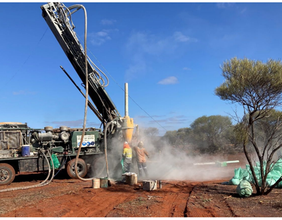Investing.com -- President Donald Trump has promised to unleash the latest deportation in American history as part of his plan to heavily crackdown on illegal immigration, but while the economic impact is likely to be limited, there is a risk that it could leave a dent in the labor supply, rejuvenating inflation , Goldman Sachs (NYSE:GS) said in a recent note.
The loss of unauthorized immigrants, who account for about 4% to 5% of the total workforce in the U.S. and 15% to 20% in some industries, they added, could be "very disruptive and have a larger inflation impact."
While the isn't the analysts' base case scenario, they note that Trump's immigration crackdown could create a climate in which unauthorized immigrants are afraid to go to work or employers are afraid to employ them.
After surging to a peak monthly annualized pace of 3.5 million to 4 million in late 2023, net immigration declined to a pace of 1.7 million by December 2024, driven by lower unauthorized immigration.
Trump's plan to crackdown on immigration is expected to reduce net immigration to 750,000 per year, the analysts estimated. This slower pace of immigration is unlikely to cause a dent in the economy as the boost form immigration to t the labor force "remains above 40k above normal now and should return to normal by early 2026," Goldman Sachs said.
"Lower immigration would contribute 30-40bp less to potential GDP growth than in 2023-2024 but just 5bp less than pre-pandemic," it added.
The strong labor market has played a major role in sustaining U.S. economic exceptionalism, but this growth has muddied the path for further rate cuts.
Fed chairman Jerome Powell echoed the strong labor market and economic growth as reason for the Fed to remain cautious on further rate cuts.
“We’re in a pretty good place with this economy. We want to make more progress on inflation. And we think our policy rate is in a good place, and we don’t see any reason to be in a hurry to reduce it further,” Powell told members of the Senate Banking Committee on Tuesday.




